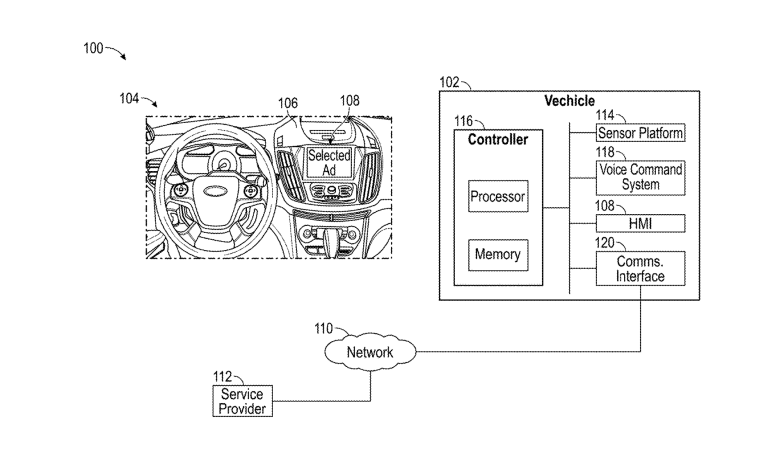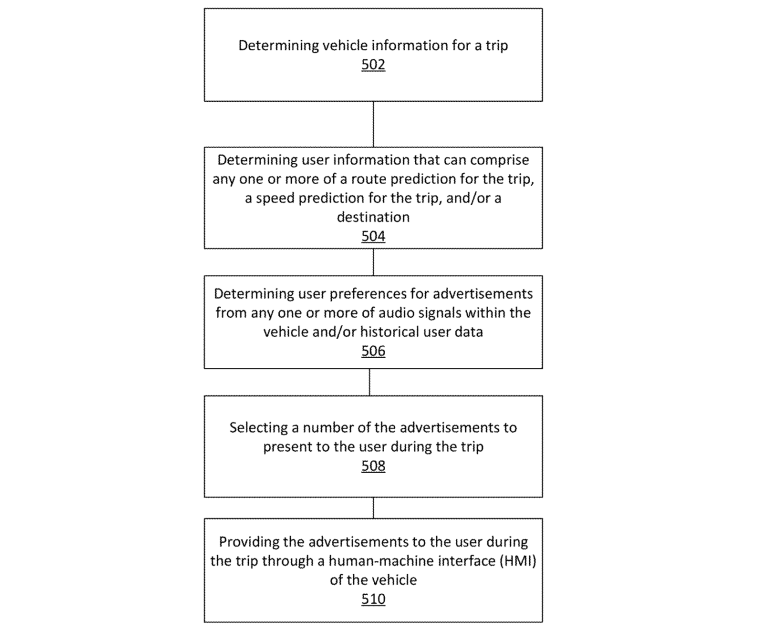Ahh, the potentially embarrassing horrors this might spawn…
In case you were wondering about the current pace of the high-tech dystopian future, Ford has recently obtained a patent for an in-car advertising system. Not only will said system target ads at you based on user data, but it will also listen in on conversations between passengers to do the same.
Well, rides to Grandma’s house are going to become akin to A Quiet Place real damn fast. If that sounds inaccurate, well, that’s because I never watched that movie, don’t @ me.


The patent in question is focused on an “in-vehicle advertisement presentation system” which intends to display ads on the vehicle’s infotainment screen. Which is great; I know that when I’m driving somewhere unfamiliar with directions, what I really want is to be blasted with unhelpful ads for restaurants or products I likely have zero intention of buying. But as noted above, it doesn’t end there; as noticed by Motortrend, it can also listen in on conversations between passengers to serve up more targeted ads. What could possibly go wrong?!
Per the patent:
For example, this can include listening to conversations between occupants in the vehicle. The conversations can be parsed for keywords or phrases that may indicate where the occupants are traveling to.
Surely the ads would stop there, right? No, because it also uses your destination data to serve more targeted ads. Why, no ad system, I would not like another month-long bout of food poisoning from that one combination KFC/Taco Bell, thank you very much.
These systems and methods may intelligently schedule variable durations of ads, with playing time seeking to maximize company revenue while minimizing the impact on user experience.
Fortunately, as the patent notes, Ford realizes that forcing you to watch ads while you’re driving is probably not the safest thing. So instead, they think it’ll really take off with the whole autonomous vehicle thing in the future.
Oh, and also, those ads could work in autonomous taxis by utilizing historical data from third party applications.
Thankfully, not every patent leads directly to a device or system made. As Ford says:
Submitting patent applications is a normal part of any strong business as the process protects new ideas and helps us build a robust portfolio of intellectual property.
The ideas described within a patent application should not be viewed as an indication of our business or product plans. No matter what the patent application outlines, we will always put the customer first in the decision-making behind the development and marketing of new products and services.
Source: PC Mag

